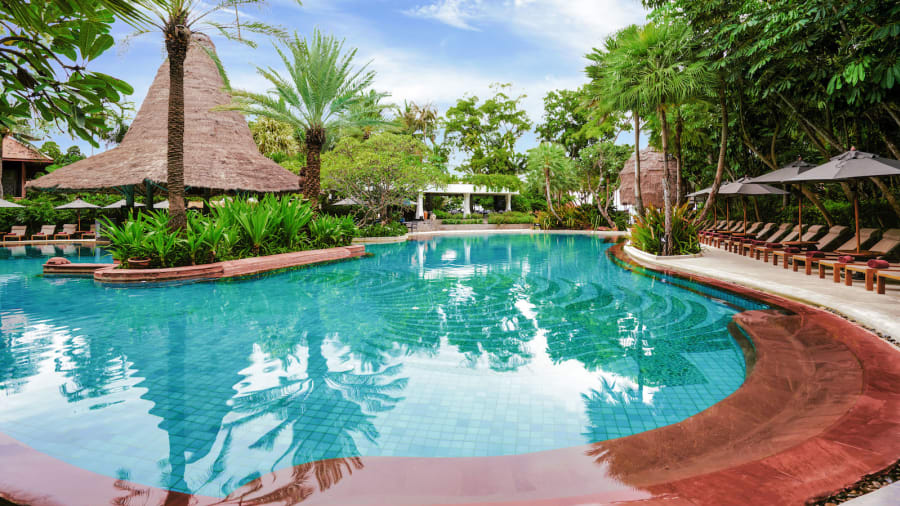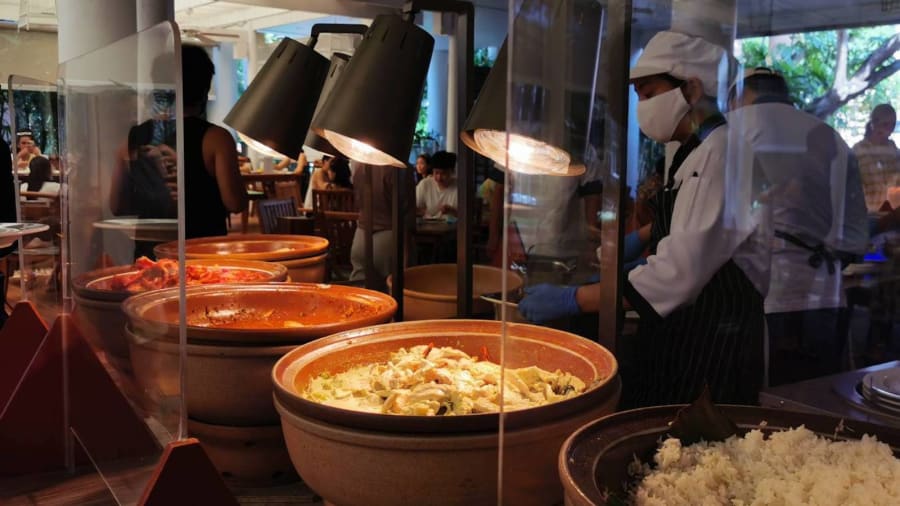Travelling domestically in Thailand brings Covid-style hotel accommodations

As Thailand remains closed to international tourists with travel bubbles being postponed indefinitely, the country has shifted to relying on domestic tourism to close some of the gaps in profit losses. As it heavily relies on tourism, which accounts for around 15% of its GDP, hotels are adapting to welcoming domestic tourists by offering Covid-conscious accommodations.
But as the popular international tourist locations are proving hard to reach for many cash-strapped locals, they are instead shifting their travels to such resort towns as Hua Hin, which is logistically easier and cheaper to take a long weekend from Bangkok as it is only a 3 hour drive away. Hua Hin isn’t new to the Bangkok weekend travel scene as it has been a popular retreat amongst royalty and Bangkok workers for over a century. Now, as the government has issued travel vouchers, the resort town is booming thanks to its convenient location to the country’s capital.
According to CNN Travel, high-end Hua Hin properties such as Anantara, are surprisingly reporting high occupancy rates. Anantara’s general manager, Graham Ure, says last-minute travellers are accounting for the unexpected bookings.

“We expected to be busy when we reopened but the demand was beyond our initial forecast and it truly was incredible. We are seeing a lot of last-minute demand for the destination – weekends presently we are running at 100% occupancy.”
But the normal procedure upon entering such hotels has changed, along with the overall appearance as safety measures accompany the normally pristine lobbies. Upon checking in, guests have to fill in a form with their contact info with sanitised pens and have their temperatures checked. The lobby desks have plexiglass installed to protect staff and guests from swapping germs.
Upon entering hotel rooms, the scene appears a bit barer to decrease “touch points” such as decor. Guests will see TV / stereo remotes covered in plastic, amenities kits with masks (mandatory usage only for dining areas) and hand sanitisers. The desk light has also been transformed into a UVC ozone disinfection light which is turned on prior to each new arrival.
Staff have had to adapt to the strict safety measures as they wear masks around the clock and usually serve the food during buffets instead of allowing guests to self-serve. Buffet food is behind plexiglass in an effort to stop possible contamination and guests will no longer see cloth napkins at their tables.

Ure says other safety guidelines are mostly invisible to guests as hotel staff undergo temperature checks and other sanitary practices.
“Hua Hin is booming. I love the fact that it’s known again for all the right reasons – it’s a family destination, offering a nice weekend on the beach. We’ve been successful because of what we offer – fabulous service and privacy . We are so busy. Weekdays, weekends – I’ve never had to say ‘sorry but we’re full’ to so many people. It’s a good problem to have. ”
Anantara isn’t the only resort experiencing a boom in bookings, as many hotels are reportedly reaping the benefits of staying open to domestic tourists during the Covid pandemic. Upon visiting Hua Hin’s Night Market, a CNN Travel reporter says it was packed with visitors, most wearing masks.
Latest Thailand News
Follow The Thaiger on Google News:


























